 Uncensored turns its unique journalistic eye toward Anita Ekberg. 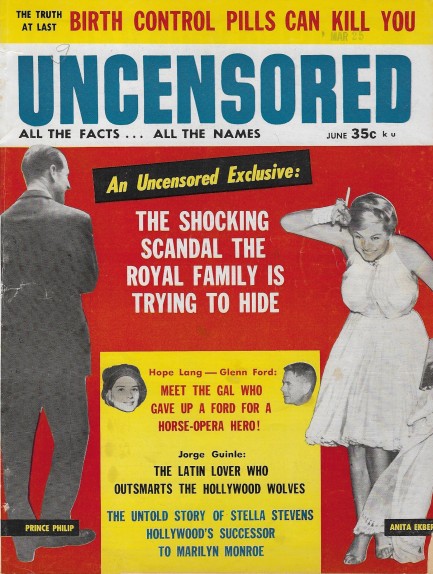
There's nothing quite like tabloid writing, a fact once again amply demonstrated by Uncensored. This issue is from June 1963, and check out this short paragraph from its feature on Anita Ekberg: “This is the Uncensored story of how Prince Philip bagged a rare and exotic Scandinavian pouter pigeon. Though its native habitat is Sweden, this double-breasted dove prefers the warmer climate of Italy. It also migrates as far from home as London and Hollywood.”
Double-breasted dove? They don't write like that anymore, and a good thing too. It's sexist, of course, but the tabs were generally belittling of both females and males—though in different ways. Women were derided  for dating around, such as when Uncensored refers to Ekberg as “Sexberg,” whereas men were usually disparaged for not being manly enough. That typically involved either being rebuffed by women, not scoring with enough women, or sexually preferring men. You see this in the story on Marcello Mastroianni, who's called “lazy” for passing on Brigitte Bardot. And you see it in the story on the United Nations, which is referred to as the “U.N. pansy patch.” for dating around, such as when Uncensored refers to Ekberg as “Sexberg,” whereas men were usually disparaged for not being manly enough. That typically involved either being rebuffed by women, not scoring with enough women, or sexually preferring men. You see this in the story on Marcello Mastroianni, who's called “lazy” for passing on Brigitte Bardot. And you see it in the story on the United Nations, which is referred to as the “U.N. pansy patch.”
From the perspective of 2017, the heteronormative insecurity is pretty obvious. Men are to be prowling wolves, and any failure to live up to the ideal prompts insults; women are to be readily available for action, but not to other men. The story on Ekberg treads the line of admiring her beauty, but being suspicious about the freeness of her affections. There's a photo of her dancing with a black G.I. in Rome, and while the caption is neutral, in the context of the story the meaning of the shot is clear: “Ekberg will even dance with a black man!”
We love the photo. Ekberg looks a bit baffled, as if the soldier is telling her, “We'd be in mortal danger for doing this in most of the United States, you know,” and Ekberg is saying, “What the hell are you talking about?” The photo also shows how tall Ekberg was, almost 5' 7”, probably 5' 10” in heels, which is towering for an actress who needed to star alongside all those mid-sized leading men. We think this is the first time this image has appeared online.
Other elements worth noting in this issue include French actress and Pulp Intl. femme fatale Dominque Boschero as a mermaid, Marlene Dietrich looking dapper in a tux, Jayne Mansfield and one of her famed toy poodles, and burlesque queen Blaze Starr sudsy in a bathtub. There are plenty of other great shots too, and you can see them all below in nearly forty scans. Uncensored will return. 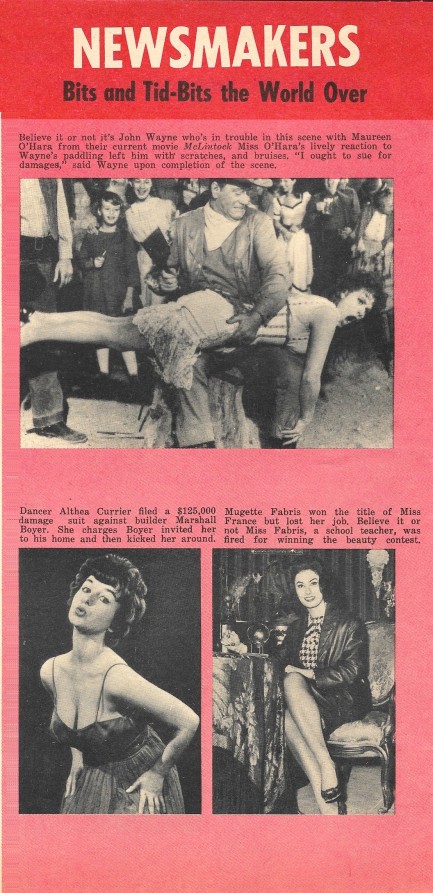 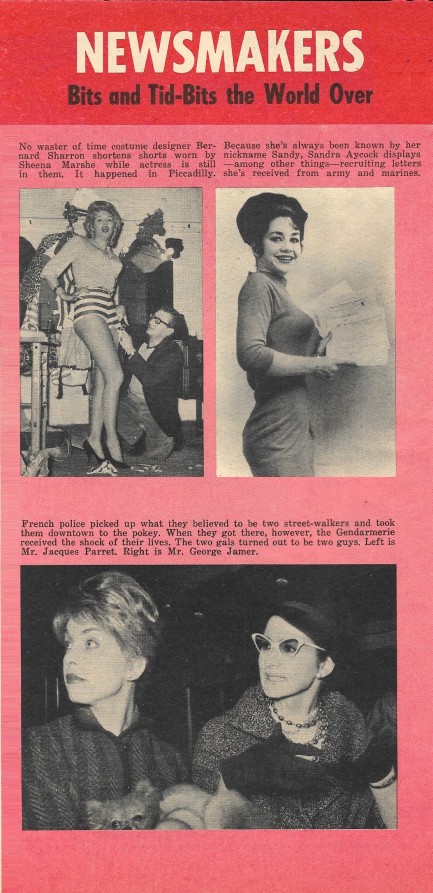 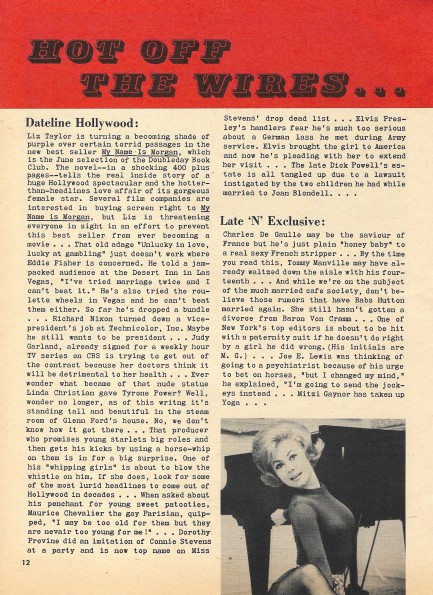 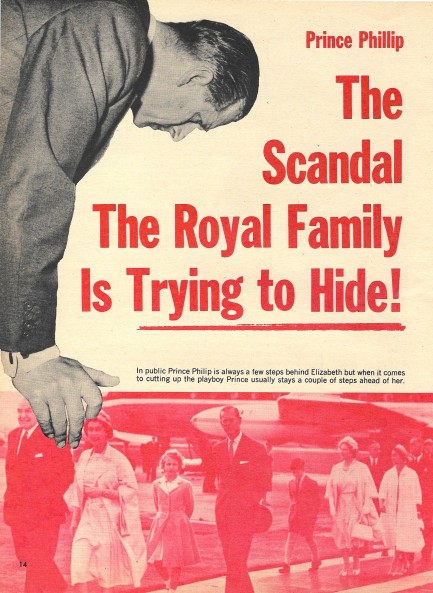 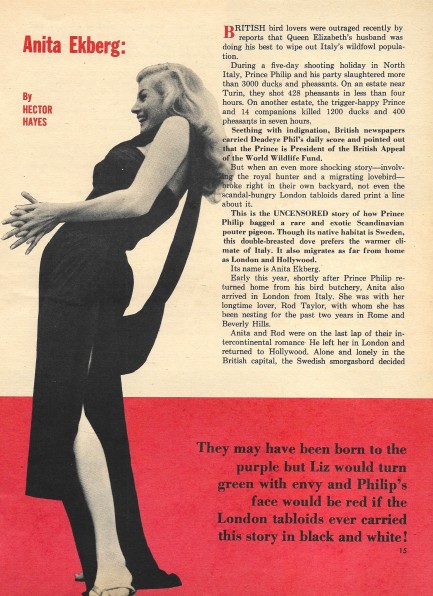 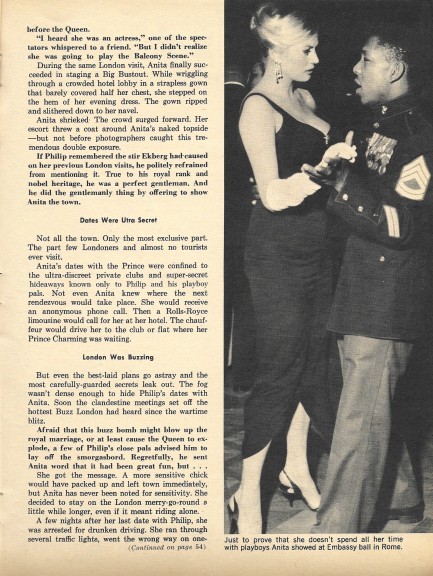 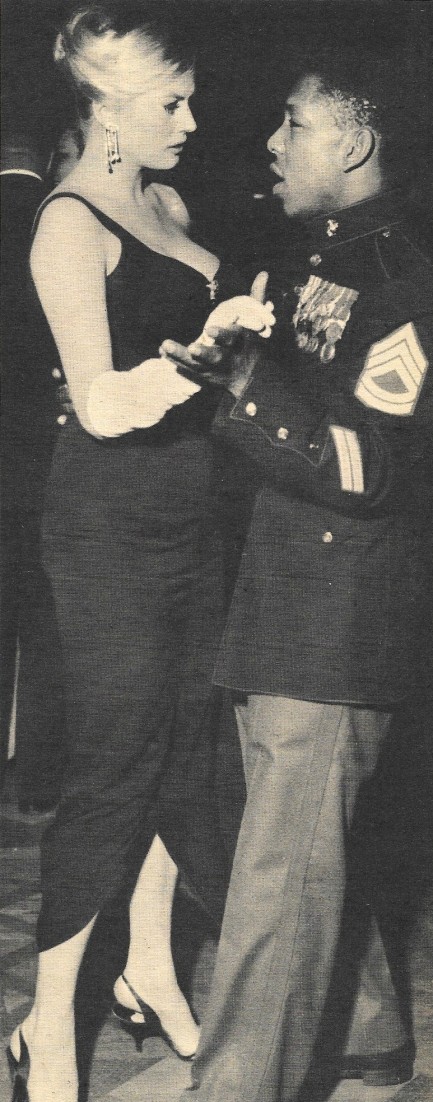 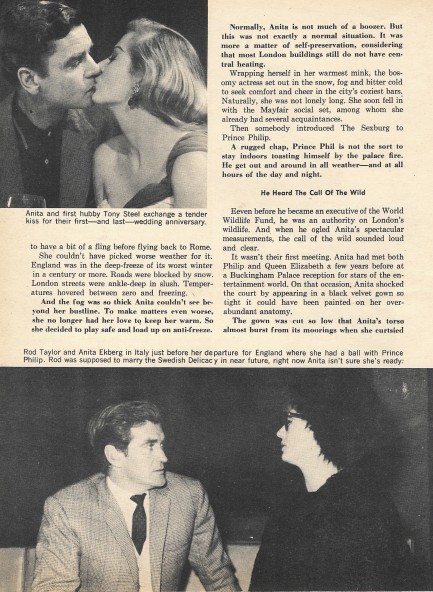 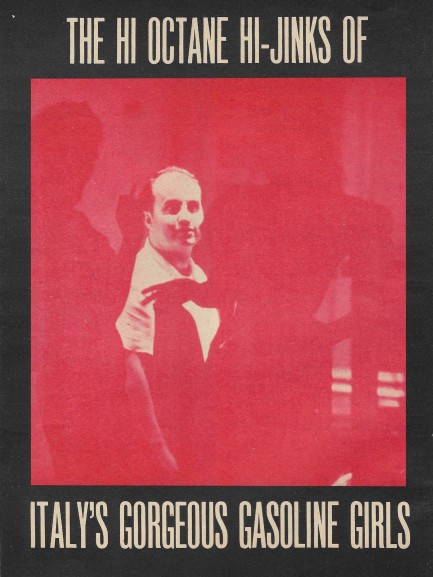 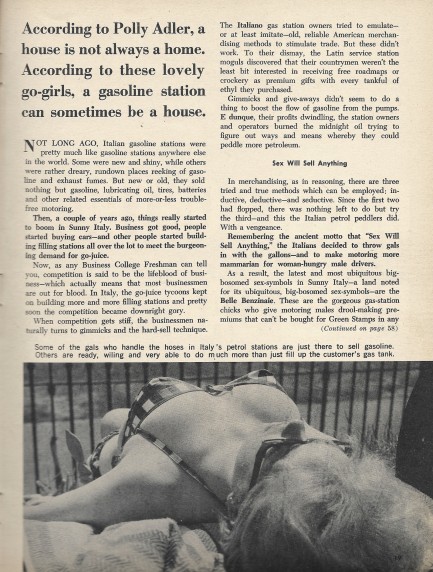 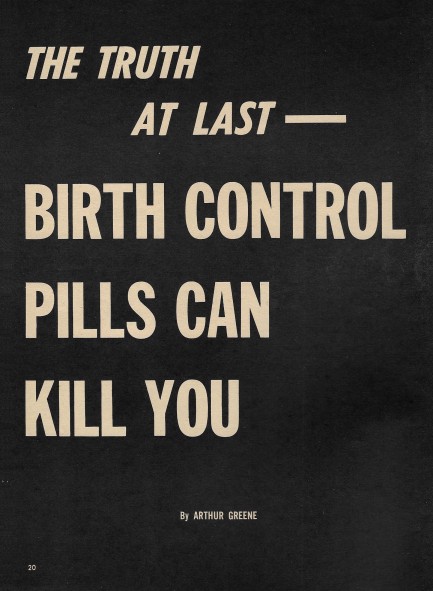 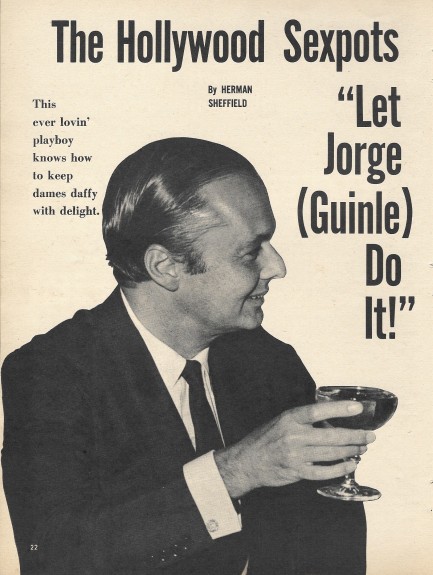 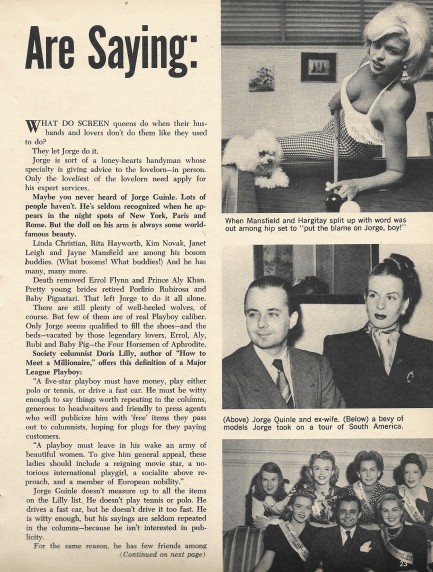 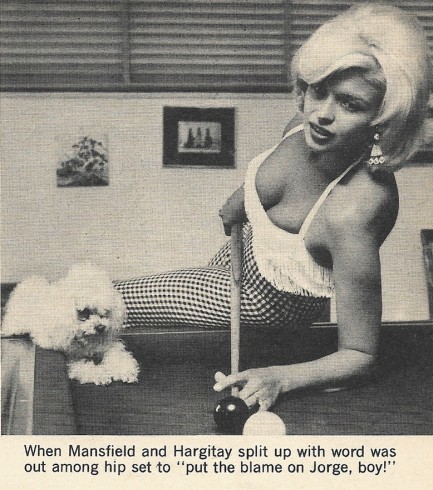 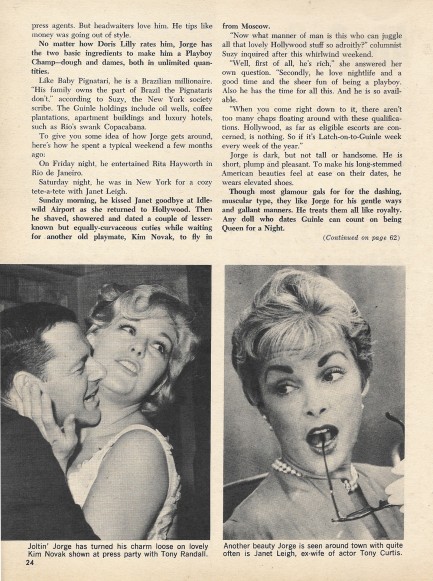 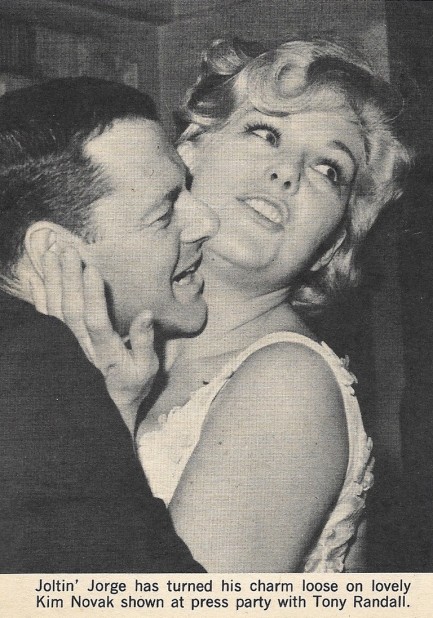 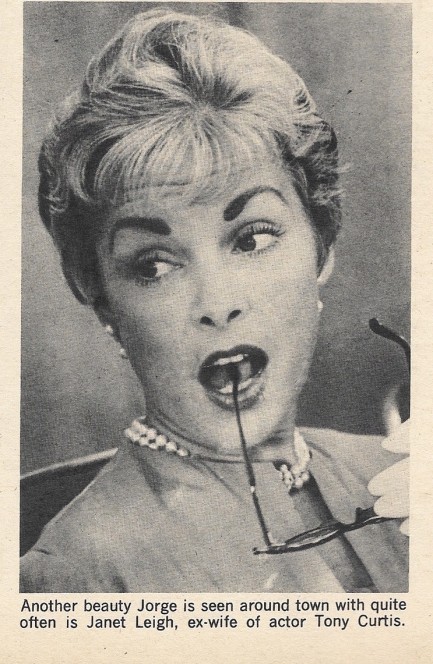 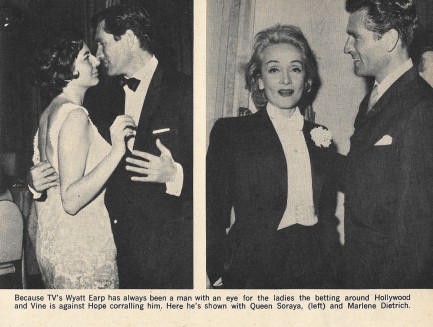 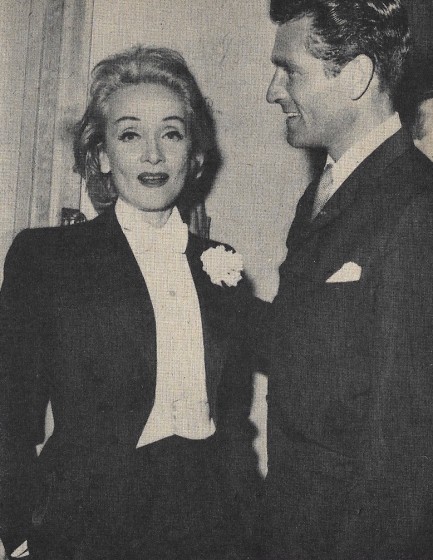 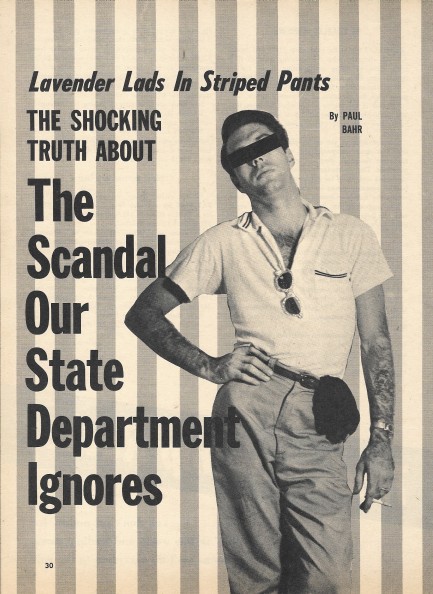 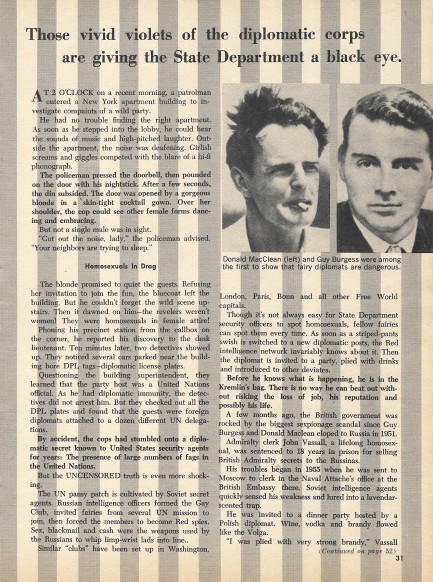 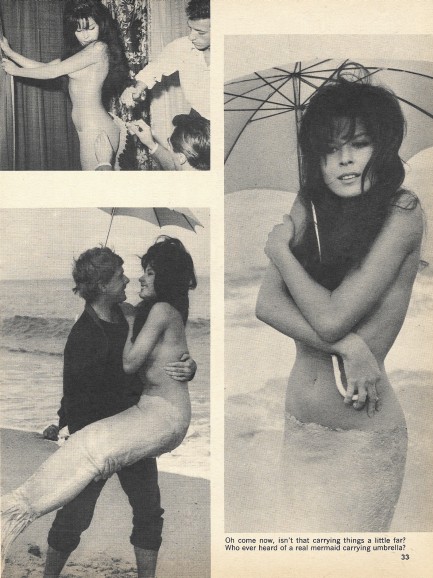 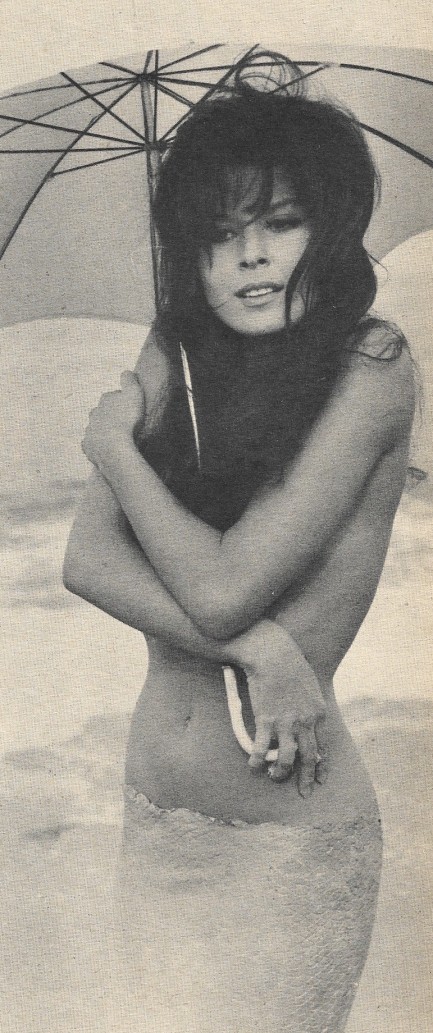 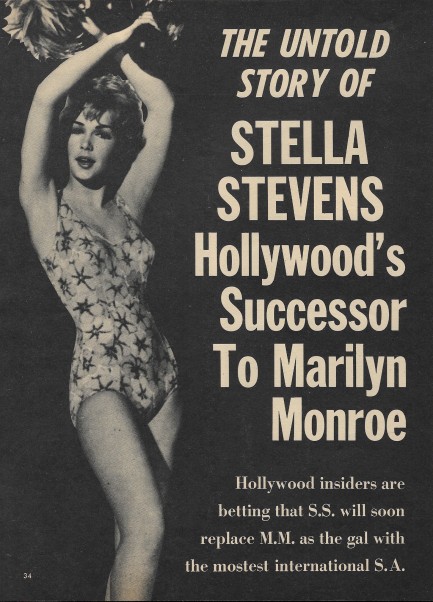 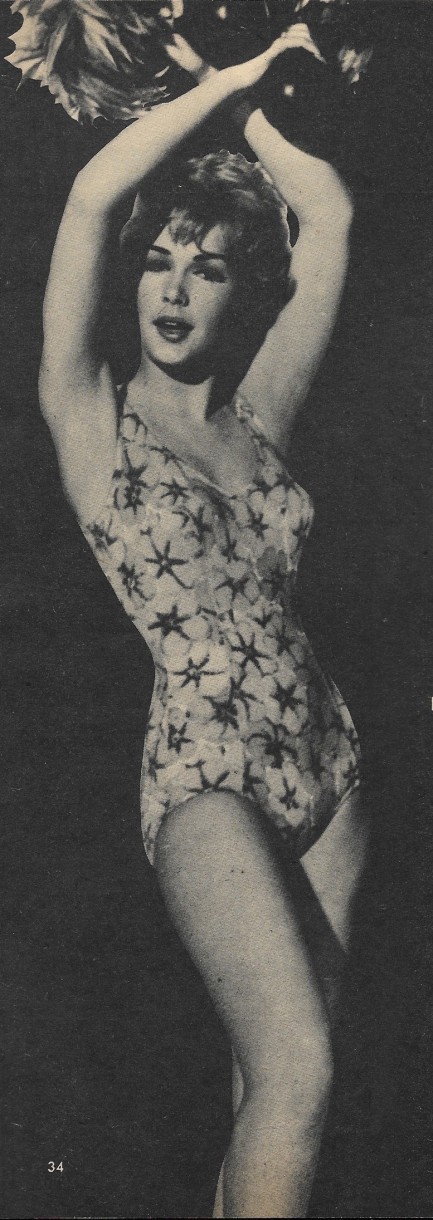 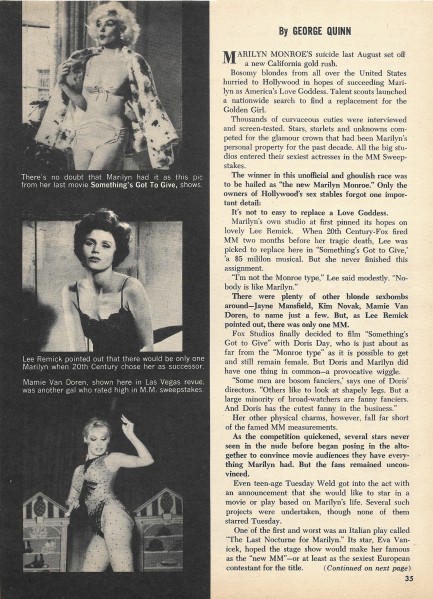 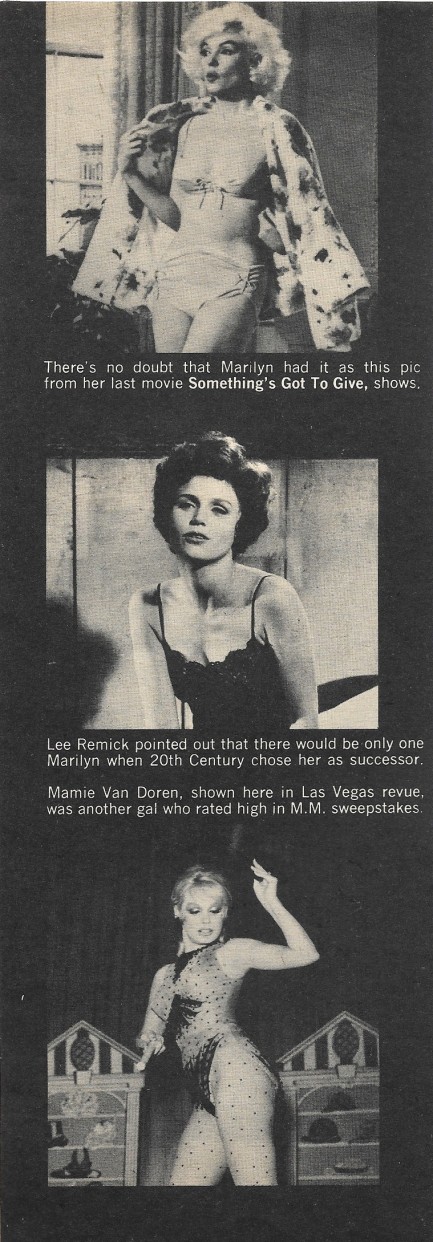 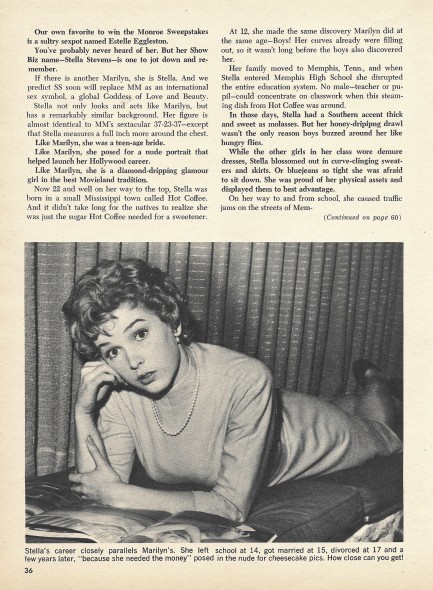 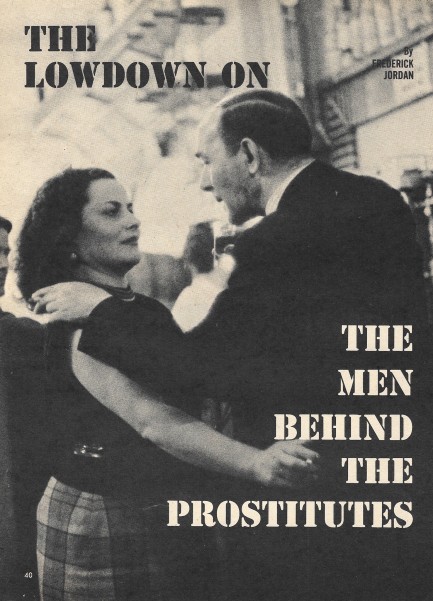 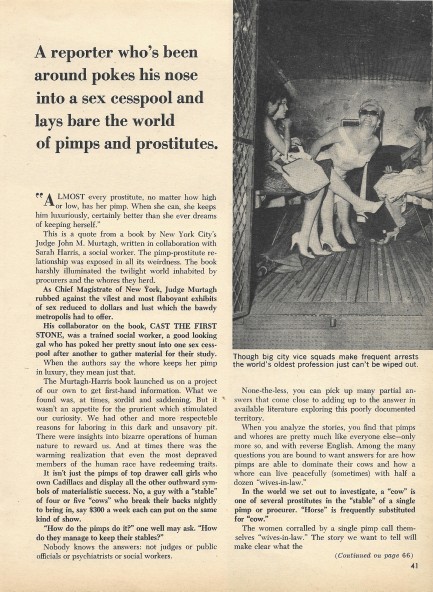 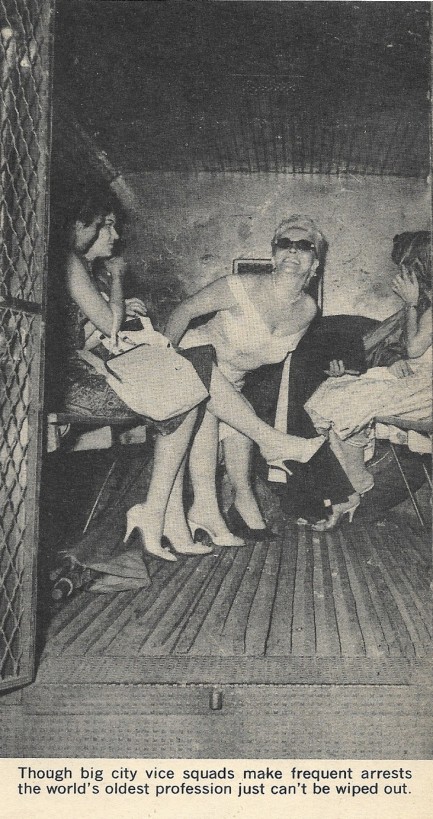 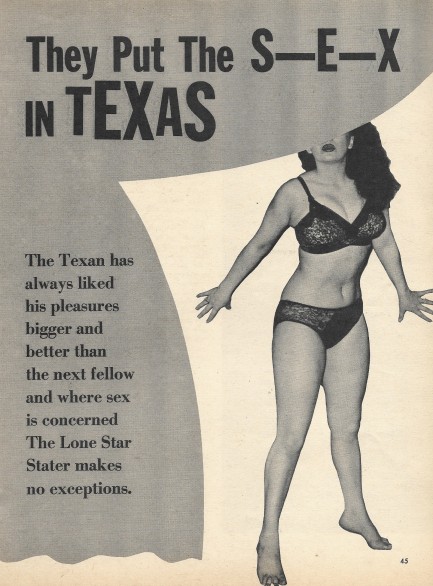 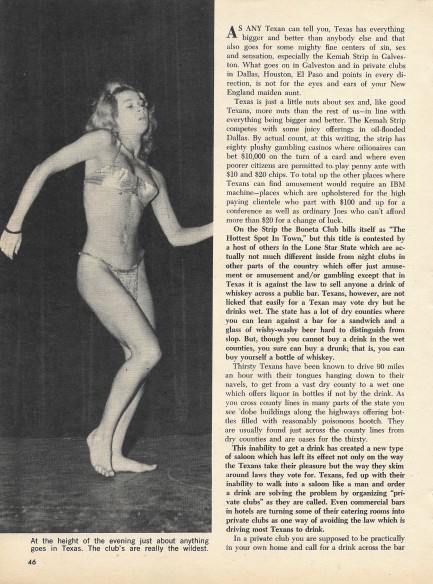 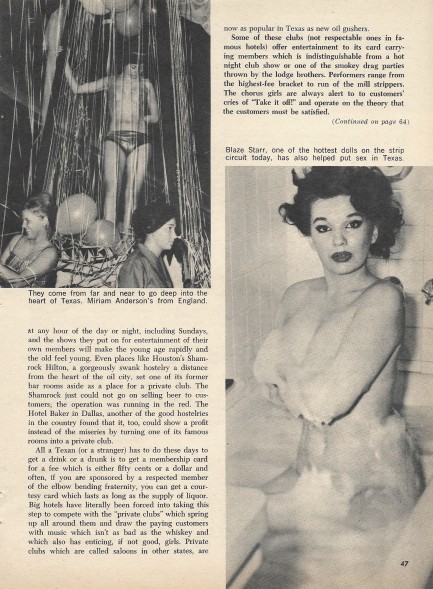 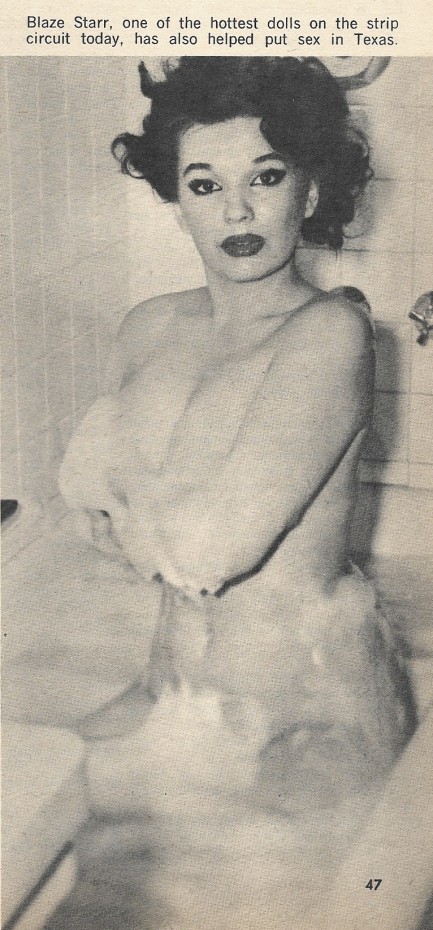
 The chef is always right. 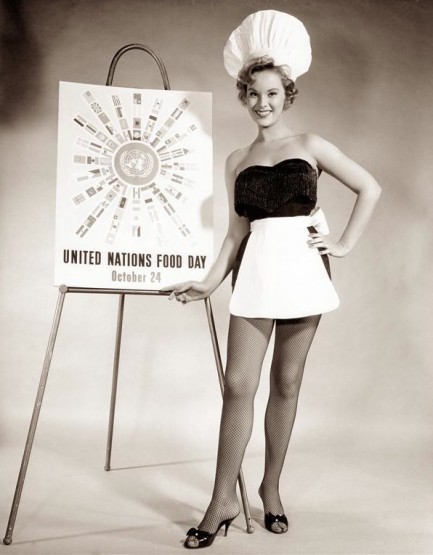
The above shot shows American actress Carolyn Komant doing her part for either world hunger or cultural food awareness (the smile and chef's hat make us suspect the latter) for the United Nations in 1961. A former beauty pageant winner, Komant was familiar with public appearance work and was also Queen of the 34th annual Newball Saugus Rodeo, and Miss Safety Check for Burbank, California in 1961. She parlayed her recognition into regular television roles between 1959 and 1961, and one film role, a bit part in 1962’s House of Women, before marrying and giving up show business.
 Rising to the challenge, brighter futures for all. 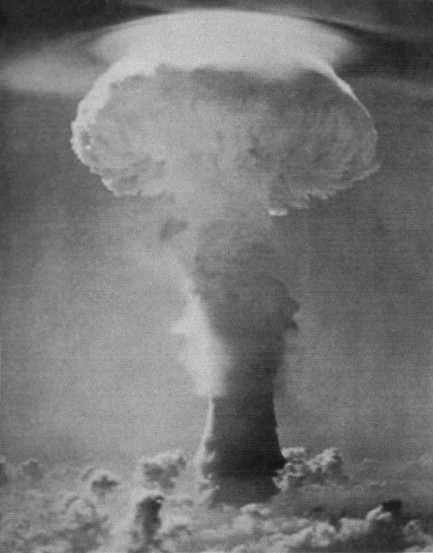
In February 1960 France detonated this nuclear weapon, known as Gerboise Bleue, in the Algerian desert. In so doing the French defied the wishes of the United Nations and came under intense criticism from the Soviet Union and several African nations. The shot was their first of three in Algeria that year, with the goal of creating a compact nuclear warhead that could fit atop a missile. But it also happened to occur during the Algerian War and was clearly meant to terrify Algerians, who were fighting for independence. In 1999 France admitted it had exposed the local population to nuclear radiation and agreed to pay compensation.
 Murdered lawyer points accusatory finger two days after his death. 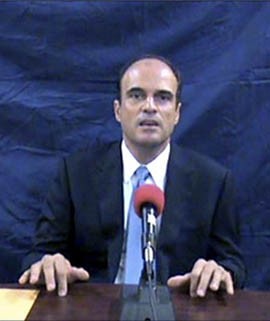
In a twist right out of a Mario Puzo novel, a Guatemalan lawyer killed in a shooting Sunday reappeared on a posthumous videotape yesterday claiming the person who ordered his killing is Guatemala’s president, Alvaro Colóm. On the video, Rodrigo Rosenberg claims he ran afoul of important government officials after representing businessman Khalil Musa, who was slain in March along with his daughter. Rosenberg says Musa was killed for refusing to help launder drug money at Guatemala's Rural Development Bank, which is mostly government owned. President Colóm dismissed the accusation, saying, “First of all, I am not a murderer. Second, I am not a drug trafficker, and everything he says there is totally senseless.” Colóm has reportedly asked the UN and FBI to investigate Rosenberg’s killing, but the country has been thrown into a state of unrest, with many calling for the president to step aside until the issue is resolved. It’s just the latest blow for Guatemala, which has suffered a CIA-backed coup, numerous corrupt governments, and the recent rise of powerful drug cartels. As yet President Colóm has shown no intention to step aside, but Rosenberg’s accusations—factual or not—are extraordinarily damaging. Speaking of himself in the past tense, Rosenberg says: “I was a 47 year old Guatemalan, with four beautiful children, with the best brother one could ask of life, with wonderful friends, and with an overwhelming desire to live in my country.”
|
 |

The headlines that mattered yesteryear.
1927—Mae West Sentenced to Jail
American actress and playwright Mae West is sentenced to ten days in jail for obscenity for the content of her play Sex. The trial occurred even though the play had run for a year and had been seen by 325,000 people. However West's considerable popularity, already based on her risque image, only increased due to the controversy. 1971—Manson Sentenced to Death
In the U.S, cult leader Charles Manson is sentenced to death for inciting the murders of Sharon Tate and several other people. Three accomplices, who had actually done the killing, were also sentenced to death, but the state of California abolished capital punishment in 1972 and neither they nor Manson were ever actually executed. 1923—Yankee Stadium Opens
In New York City, Yankee Stadium, home of Major League Baseball's New York Yankees, opens with the Yankees beating their eternal rivals the Boston Red Sox 4 to 1. The stadium, which is nicknamed The House that Ruth Built, sees the Yankees become the most successful franchise in baseball history. It is eventually replaced by a new Yankee Stadium and closes in September 2008. 1961—Bay of Pigs Invasion Is Launched
A group of CIA financed and trained Cuban refugees lands at the Bay of Pigs in southern Cuba with the aim of ousting Fidel Castro. However, the invasion fails badly and the result is embarrassment for U.S. president John F. Kennedy and a major boost in popularity for Fidel Castro, and also has the effect of pushing him toward the Soviet Union for protection.
|

|
|

It's easy. We have an uploader that makes it a snap. Use it to submit your art, text, header, and subhead. Your post can be funny, serious, or anything in between, as long as it's vintage pulp. You'll get a byline and experience the fleeting pride of free authorship. We'll edit your post for typos, but the rest is up to you. Click here to give us your best shot.

|
|


 for dating around, such as when Uncensored refers to Ekberg as “Sexberg,” whereas men were usually disparaged for not being manly enough. That typically involved either being rebuffed by women, not scoring with enough women, or sexually preferring men. You see this in the story on Marcello Mastroianni, who's called “lazy” for passing on Brigitte Bardot. And you see it in the story on the United Nations, which is referred to as the “U.N. pansy patch.”
for dating around, such as when Uncensored refers to Ekberg as “Sexberg,” whereas men were usually disparaged for not being manly enough. That typically involved either being rebuffed by women, not scoring with enough women, or sexually preferring men. You see this in the story on Marcello Mastroianni, who's called “lazy” for passing on Brigitte Bardot. And you see it in the story on the United Nations, which is referred to as the “U.N. pansy patch.” 












































































































